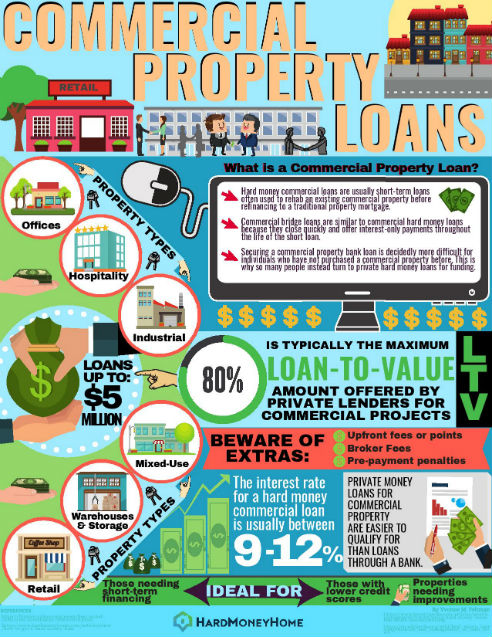How a Hard Money Lending Works: a Comprehensive Overview for Debtors
Hard money financings present a special financing alternative that leverages actual estate as security, appealing especially to those that require quick accessibility to funding. Understanding the technicians of these finances is necessary for customers, as the procedure differs substantially from typical borrowing methods.
Understanding Tough Money Car Loans
Comprehending tough money loans is essential for both actual estate capitalists and consumers looking for fast funding. Hard cash financings are protected by genuine estate, with the residential or commercial property itself serving as collateral.
The terms of hard money loans are generally temporary, varying from a few months to a couple of years, and they usually come with higher rates of interest compared to conventional finances. This premium mirrors the higher threat lenders presume and the expedited nature of the loan process. Investors frequently utilize hard money car loans for fix-and-flip projects, permitting them to obtain, restore, and market residential properties rapidly commercial.
In addition, the underwriting criteria for hard cash car loans are usually much less rigid, helping with faster authorizations. Borrowers should remain watchful regarding the payment terms and possible penalties for default, as these finances can lead to substantial monetary repercussions if not handled properly. Understanding these dynamics is important for informed decision-making in property funding.
The Application Refine
Applying for a difficult cash car loan includes a structured process that can be finished relatively swiftly contrasted to typical borrowing methods. The very first action is to identify a trustworthy difficult money lending institution who specializes in the sort of building funding you need. Customers usually begin by submitting a car loan application, which consists of vital details concerning the property, the designated usage of the funds, and their financial standing.
When sent, the lending institution will carry out a residential or commercial property evaluation to identify its market price and evaluate the threat involved. Unlike conventional financings that greatly evaluate credit rating, hard cash lenders mostly concentrate on the security value. This indicates that residential properties with strong equity can protect financing even if the customer's credit scores history is less than stellar.
After the evaluation, the lending institution will certainly offer a lending proposal, detailing the terms, rate of interest, and any type of extra costs. Upon acceptance, borrowers will require to provide needed paperwork, such as proof of identification and possession of the residential property. The final action is the closing procedure, where the funds are disbursed, enabling debtors to use the resources for their desired objective.
Advantages of Tough Cash Finances

In addition, difficult cash lendings are largely based upon the worth of the collateral rather than the debtor's creditworthiness. This can be specifically useful for those with less-than-perfect credit scores or for financiers wanting to leverage buildings with equity. The flexible underwriting requirements enable borrowers to access funds that may or else be not available via traditional financing networks.
Furthermore, tough money lending institutions often have an even more structured approval process, which can be helpful genuine estate financiers visit their website who call for fast accessibility to resources for home procurements or improvements. This agility can result in an affordable edge in hectic markets.
Finally, hard cash car loans can provide a beneficial tool for borrowers looking for to finance distinct projects that do not fit conventional lending standards, hence broadening their investment possibility.
Potential Risks and Drawbacks
While difficult money financings can be an appealing choice for some debtors, they are not without their prospective dangers and disadvantages. Among one of the most considerable worries is the high passion rates connected with these loans, which can commonly surpass those of standard funding. Hard Money Loans In Georgia. This elevated expense can lead to substantial economic stress, especially if the consumer deals with unpredicted obstacles in paying back the car loan
Additionally, difficult money fundings generally feature much shorter settlement terms, usually varying from one to 3 years. This minimal timeframe can produce pressure for debtors to offer or re-finance their property quickly, which might not constantly line up with market problems. The reliance on the building's worth rather than the customer's creditworthiness indicates that fluctuations in the actual estate market can significantly influence the financing's stability.

An additional noteworthy risk is the absence of governing oversight that regulates tough cash loaning. This can cause predative lending methods or undesirable terms that are not transparent to the debtor. In general, while tough money loans can give fast access to funds, it is necessary for borrowers to thoroughly examine these threats and consider their lasting economic implications prior to continuing.
Contrasting Difficult Cash to Standard Finances
When examining funding choices, it is vital to recognize the key differences between tough cash loans and conventional fundings. Difficult money fundings are usually safeguarded by try these out actual estate and are funded by personal financiers or business.
Interest prices on difficult money finances are generally greater, showing the increased threat for loan providers - Hard Money Loans In Georgia. They use much faster authorization procedures and much less rigid qualification standards, making them appealing for those needing you can look here immediate funding, such as real estate investors. Conventional lendings, while slower to process, frequently featured lower rate of interest and longer payment terms, making them preferable for customers trying to find stable, long-lasting financing
Ultimately, the choice in between tough money and traditional loans depends upon individual scenarios, consisting of seriousness, credit score standing, and the specific financial objectives of the customer. Comprehending these distinctions can help lead consumers in choosing the most proper financing option for their needs.

Final Thought
In summary, tough cash finances supply a sensible funding alternative for borrowers requiring fast access to funds, particularly when traditional borrowing avenues are not available. The structured application process, integrated with the capacity to take advantage of realty as security, offers unique advantages. Nonetheless, it is vital to take into consideration the possible threats and drawbacks related to higher rate of interest prices and costs. Eventually, careful assessment of this funding method in contrast to standard financings is important for informed decision-making.
Recognizing difficult money finances is vital for both genuine estate financiers and borrowers seeking quick capital.The terms of difficult money loans are normally temporary, ranging from a couple of months to a couple of years, and they usually come with greater interest prices compared to standard fundings. Unlike conventional fundings that may take months or weeks to process, difficult money loans can often be safeguarded in a matter of days, allowing borrowers to exploit on time-sensitive financial investment opportunities.
When assessing funding choices, it is vital to comprehend the essential distinctions in between hard cash loans and traditional car loans.In recap, tough money financings give a feasible financing alternative for customers calling for quick access to funds, particularly when standard lending opportunities are inaccessible.